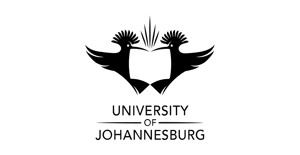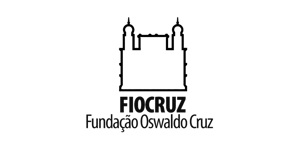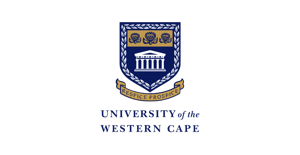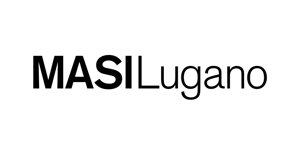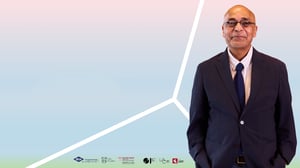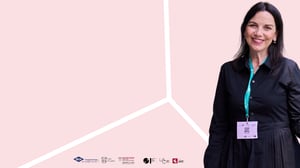Senotherapeutics Revolution:
Transforming Aging and Cancer Therapy
30 June 2025
USI Auditorium
Via Giuseppe Buffi 13, Lugano

Il progetto
Fluid Boundaries è un progetto di collaborazione tra il programma Artists-in-Labs dell'Università delle Arti di Zurigo (CH), IBSA Foundation (CH), il MASI Lugano (CH), il VIAD dell'Università di Johannesburg (SA), l'AiRSA (SA) e la Galeria Portas Vilaseca (BR).
Fluid Boundaries riunisce artisti, scienziati, curatori e esperti di conoscenze indigene per capire come si crea, si condivide e si valorizza la conoscenza sull'acqua.
Il progetto mette in discussione le dinamiche di potere radicate nella società che determinano chi ha voce in capitolo, chi viene ascoltato e dove si ritiene che abbia origine la conoscenza, soprattutto tra quelli che spesso vengono visti come i “centri” e le “periferie” del nostro pianeta, in termini di geografia, scena artistica, istituzioni scientifiche e conoscenze ancestrali.
The project
Fluid Boundaries is a collaboration project between artists-in-labs program at Zurich University of the Arts (CH), IBSA Foundation (CH), MASI Lugano (CH), VIAD at the University of Johannesburg (SA), AiRSA (SA) and Galeria Portas Vilaseca (BR).
Fluid Boundaries brings together artists, scientists, curators and indigenous knowledge conveners to explore how knowledge around water is created, shared, and valued.
At its core, the project questions the entrenched power dynamics that shape who gets to speak, who is heard, and where knowledge is believed to originate - especially between what are often seen as the "centres" and the "margins" of our planet, in terms of geography, the art scene, science institutions and ancestral knowledge.
IBSA Foundation, together with MASI Lugano, is contributing as a Swiss partner by including the programme in SciArt SwitzerlAnd
About SciArt SwitzerlAnd
SciArt SwitzerlAnd is a project of IBSA Foundation for scientific research in collaboration with LAC Lugano Arte e Cultura and MASI Lugano, Museo d'arte della Svizzera italiana.
Through different event formats and digital products, SciArt SwitzerlAnd intends to cast its gaze on those artistic creations that have been transformed through interaction with scientists, discoveries and research institutions.
The public will be able to get up close to fascinating proposals born out of the encounter between multiple dimensions, and hear from the living voices of artists and scientists how very different realities influence each other.

IBSA Foundation, insieme al MASI Lugano, contribuisce come partner svizzero inserendo il programma all’interno di SciArt SwitzerlAnd.
SciArt SwitzerlAnd è un progetto di IBSA Foundation per la ricerca scientifica in collaborazione con LAC Lugano Arte e Cultura e MASI Lugano, Museo d’arte della Svizzera italiana.
Attraverso diversi formati di eventi e prodotti digitali, SciArt SwitzerlAnd intende puntare lo sguardo su quelle creazioni artistiche che si sono trasformate grazie all’interazione con scienziati, scoperte e istituti di ricerca.
Il pubblico potrà avvicinarsi ad affascinanti proposte nate dall’incontro tra più dimensioni, e ascoltare dalla viva voce degli artisti e degli scienziati quanto realtà molto diverse si influenzano vicendevolmente.
The call and selection of artists
In summer 2024, a public call was launched for artists to participate in a three-month residency at local scientific institutions in Cape Town, Johannesburg, Rio de Janeiro and Zurich. Below are the three selected artists:
Transdisciplinary artist, musician, filmmaker, based in Cape Town (South Africa).
Carla Maldonado
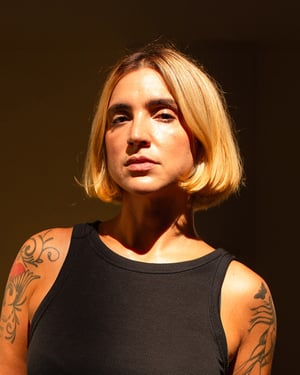
Multimedia artist working primarily in experimental cinema, installations, and multi-channel projections, based in Rio de Janeiro (Brazil).
Michael Azkoul
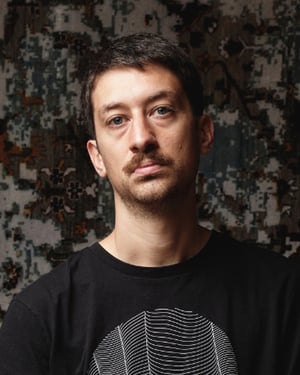
Rapper, poet, author, martial arts instructor and massage therapist, based in Geneva (Swtizerland).
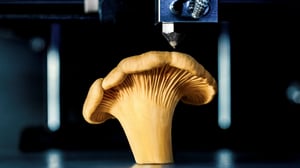
Closing session
Walter Longo
USI Auditorium
Lorem ipsum dolor sit amet, consectetur adipiscing elit. Nulla varius felis leo, et fringilla dolor sollicitudin a. Morbi vel sem sem.
Speakers’ interviews (Placeholder)

Luca Varani
Lorem ipsum dolor sit amet, consectetur adipiscing elit.
Lorem ipsum dolor sit amet, consectetur adipiscing elit.

Alessandro Ceschi
Lorem ipsum dolor sit amet, consectetur adipiscing elit.
Lorem ipsum dolor sit amet, consectetur adipiscing elit.
Lugano Happiness Forum
17-18 June 2024, LAC Lugano Art and Culture

Caspar Kaiser
Warwick Business School & University of Oxford, USA
Closing Session
Special Lecture

Valter Longo
Professor, University of Southern California Longevity Institute.
Fasting Mimicking Diets Longevity and Disease
Fasting mimicking diets (FMDs) are low calorie and protein and high fat compositions lasting 4-7 days emerging as periodic dietary interventions with the potential to improve healthspan and decrease the incidence of cancer and other age-related diseases. FMDs increase protection in healthy cells while sensitizing cancer cells to a variety of therapies, in part by generating complex environments which result in protection of normal and sensitization of cancer cells. More recent data indicates that FMDs enhances the efficacy of many drugs targeting different cancer mouse models by stimulating anti-tumor immunity. FMD cycles also reverse insulin resistance and promote multi-system regeneration by both increasing stem cells number and by inducing cellular reprogramming. In humans, these effects contribute to reducing risk factors for age-related diseases, promote diabetes regression, and reduce biological age
Valter Longo, PhD, is the Edna Jones Professor in Biological Sciences and Gerontology, the Director of the Longevity Institute at the USC School of Gerontology, one of the oldest and leading centers for aging research. His laboratory studies the fundamental mechanisms of aging in yeast, rodents and humans by using genetics and biochemistry techniques with focus on the nutrient-response signal transduction pathways that regulate disease and longevity. This work led to the identification of the role of the Tor-S6K pathway in longevity extension. His laboratory also has developed and tested the effect of periodic fasting and fasting mimicking diets on multi-system reprogramming and stem cell activation and regeneration in mice, later translated into clinical trials to prevent and treat a range of age-related diseases.
Iscriviti al Forum del 30 giugno!
Il forum è gratuito e aperto al pubblico. I posti sono limitati, non perdere questa occasione: prenota il tuo posto ora!
The art-science residencies
The three residencies took place from March to May 2025, and the artists collaborated intensively with scientists, curators and indigenous knowledge conveners in laboratories, field trips and interdisciplinary workshops.
The goal: to create a deep and equal exchange between academic, artistic and traditional knowledge.

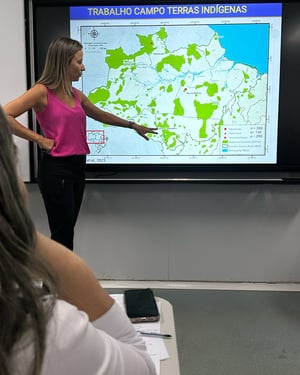
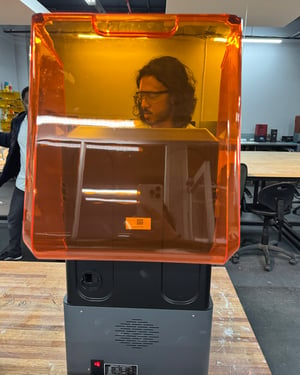
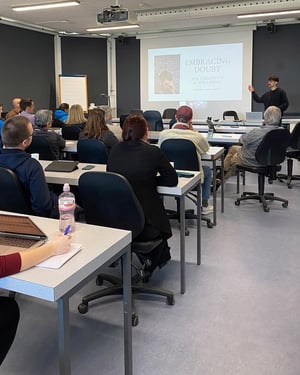
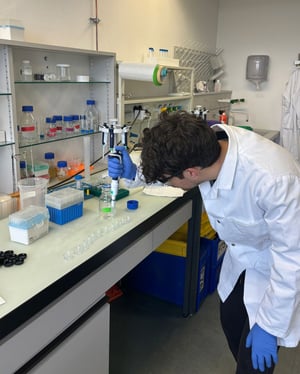
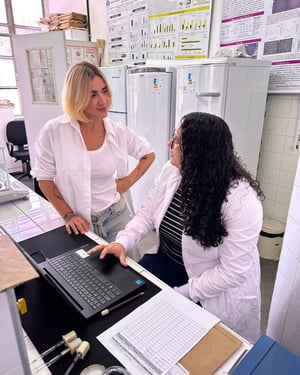
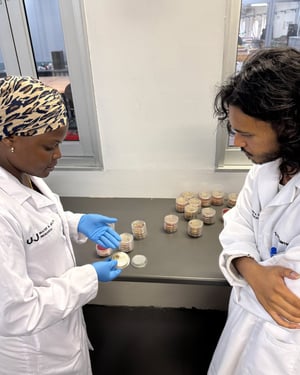
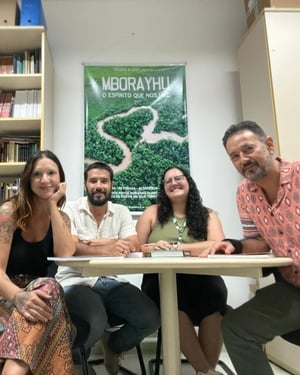
A week of workshops at Carlo Cattaneo House
The programme continues with a week-long Third Space Residency (in October 2025) at Carlo Cattaneo House, the headquarters of IBSA Foundation in Lugano. Here, artists and the other practitioners – scientists, curators and representatives of ancestral knowledge – will meet to share the discoveries that emerged from the three regional residencies, explore collaborative practices and cross disciplinary, cultural and geographical boundaries. This phase aims to generate new perspectives and innovative approaches to our relationship with water.
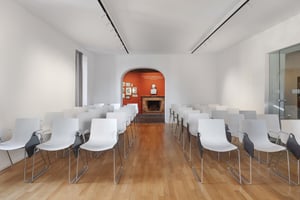
Institutions involved
Scientific Partner Institutions: University of the Western Cape (SA), University of Johannesburg (SA), Fundação Oswaldo Cruz (BR), Swiss Federal Institute of Aquatic Science and Technology (CH).
Fluid Boundaries is supported by the Swiss Arts Council Pro Helvetia.

